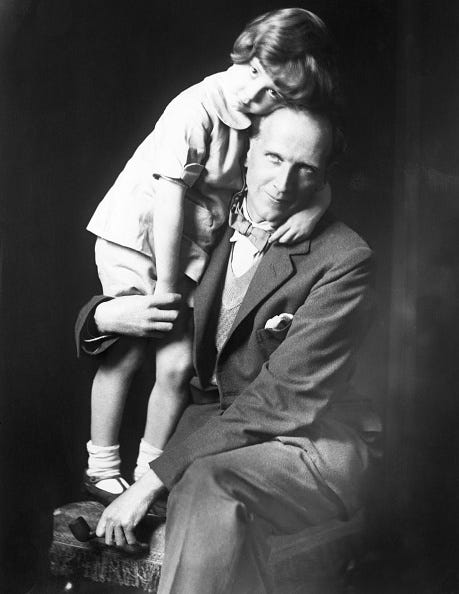The Writer's Almanac from Thursday, January 18, 2007
"A Boy in a Bed in the Dark" by Brad Sachs, from In the Desperate Kingdom of Love: Poems 2001-2004. © Chestnut Hills Press, 2004.
It's the birthday of the physician and lexicographer, Peter Mark Roget, born in London, England (1779). He was a working doctor for most of his life, but he was also a member of various scientific, literary, and philosophical societies. In his spare time, he invented a slide rule for performing difficult mathematical calculations, and a method of water filtration that is still in use today. He wrote papers on a variety of topics, including the kaleidoscope and Dante, and he was one of the contributors to the early Encylopædia Britannica.
He was 61 years old when he decided to devote his retirement to publishing a system of classifying words into groups based on their meanings. Other scholars had published books of synonyms before, but Roget wanted to assemble something more comprehensive. He said, "[The book will be] a collection of the words it contains and of the idiomatic combinations peculiar to it, arranged, not in alphabetical order as they are in a dictionary, but according to the ideas which they express."
He organized all the words into six categories: Abstract Relations, Space, Matter, Intellect, Volition, Sentient and Moral Powers, and within each category there were many subcategories. The project took him more than 10 years, but he finally published his Thesaurus of English Words and Phrases in 1852. He chose the word "thesaurus" because it means "treasury" in Greek.
Roget's Thesaurus might have been considered an intellectual curiosity, except that at the last minute Roget decided to include an index. That index, which helped readers find synonyms, made the book into one of the most popular reference books of all time. It is considered one of the great lexicographical achievements in the history of the English language, and it has been helping English students pad their vocabularies for more than 150 years.
It's the birthday of the humorist and children's book writer A. A. (Alan Alexander) Milne, born in London, England (1882). He was the author of many successful plays and novels, but though everything he wrote was entertaining, it was all forgettable. More than anything else, Milne wanted to write something that would stand the test of time. One of his friends had just started a new magazine for children, and asked him if he would contribute. He didn't have any interest in writing children's literature, even though his own son was three years old and just learning how to read. But during a holiday in Wales, he found himself trapped in the house during a rainstorm with nothing to do.
Milne said, "So there I was with an exercise-book and a pencil, and a fixed determination not to leave the heavenly solitude of that summer-house until it stopped raining. ... And there on the other side of the lawn was a child with whom I had lived for three years ... and here within me unforgettable memories of my own childhood." So he began writing a series of poems, most of them addressed to his son, Christopher Robin. The poems were collected in his book When We Were Very Young (1924), which was a huge success.
Around the same time, his son had begun playing with a group of stuffed animals named Pooh Bear, Piglet, Tigger, and Eeyore in the Ashdown forest near their house. Milne loved the idea that his son played with fake animals in a real forest. In his books Winnie-the-Pooh (1926) and The House at Pooh Corner (1928), he turned that forest into a magical place where there are no adults, but only Christopher Robin and his animal friends.
Since his death, Milne's more than 60 books for adults have almost all gone out of print, but his Winnie-the-Pooh books remain classics of children's literature. They have been translated into more than 20 languages, including Latin.
It's the birthday of the poet Jon Stallworthy, born in London (1935). His parents were New Zealanders who came to England for a temporary visit just before World War II and wound up staying for almost 30 years. Stallworthy grew up in England, but he always felt slightly out of place. He said, "I had an odd, exciting rather than disturbing, sense of not quite belonging in the middle-class world of my friends. My parents were New Zealanders, and their other world was always shimmering like a mirage at the edge of sight."
He went to a school where he was forced to memorize dozens of poems and to write new poems in the style of various authors. He said, "By the time I was 13 ... I had wrestled with Chaucerian couplets, Shakespearean sonnets, Housmanic quatrains, and knew that poetry was music and hard to write."
He went on to write many collections of poetry, including A Familiar Tree (1978) and The Guest from the Future (1995).
Be well, do good work, and keep in touch.®






I also loved AA Milne's second poetry book 'Now we are six'. The Engineer.
Let it rain!
Who cares?
I've a train
Upstairs,
With a brake
Which I make
From a string
Sort of thing,
Which works
In jerks,
'Cos it drops
In the spring,
Which stops
With the String,
And the wheels
All stick
So quick
That it feels
Like a thing
That you make
With a brake,
Not string....
So that's what I make,
When the day's all wet.
It's a good sort of brake
But it hasn't worked yet.